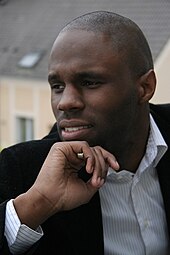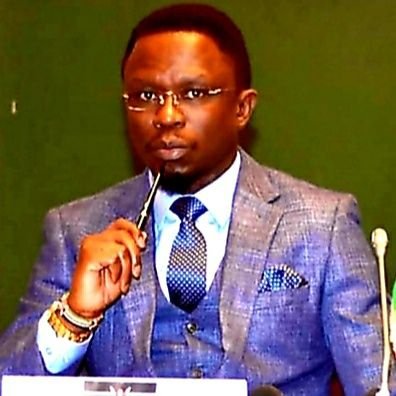Kémi Séba Biography: The Revolutionary Voice of Pan-Africanism

Who is Kémi Séba?
Kémi Séba is more than just a political activist—he’s a symbol of African resistance against neocolonialism, global economic oppression, and Western imperialism. Over the years, he’s gained international attention for his unrelenting passion for African liberation. Known for his fiery speeches and unwavering stance on decolonizing Africa, Séba has become a prominent figure in Pan-Africanism, calling for economic independence and self-reliance across the continent.
Born on December 9, 1981, as Stellio Capo Chichi in Strasbourg, France, Kémi Séba’s activism began early, but it has only grown stronger over time. Through his political movements, speeches, and writings, Séba has drawn both admiration and controversy in equal measure. In this Kémi Séba biography, we will dive deep into his life, activism, and influence, while also touching on his net worth and the economic impact of his movement.

The Early Life of Kémi Séba: A Fighter from Birth
Kémi Séba was born into a family with strong African roots, and his experiences growing up in France as part of the African diaspora shaped his early worldview. Strasbourg, a city with a complex mix of French and German influences, was where Séba’s awareness of racial and social injustice first began to form.
In the beginning of his youth, he witnessed the marginalization of African immigrants in Europe, experiencing the prejudice and systemic racism that many African diasporic families face. The injustice Kémi Séba saw in his community ignited his desire to take a stand. It wasn’t long before he began speaking out, leading him to form organizations that championed the rights of Africans both in Europe and back on the continent.
Kémi Séba took inspiration from the Pan-African movements of the past, particularly the works of Marcus Garvey, Malcolm X, and Thomas Sankara. He understood that the fight for African liberation couldn’t be won in silence, and from an early age, Séba demonstrated an ability to galvanize others around him.
Kémi Séba’s Political Activism: Taking the Fight to the Streets
At the heart of Séba’s activism is the fight against neocolonialism. Séba has consistently advocated for African nations to reject Western influences that maintain economic dependency and political subjugation. He became the face of the anti-Franc CFA movement, calling out the currency as a tool for French dominance over former African colonies.
His activism gained momentum in 2006, when Séba founded Tribu Ka, an organization promoting Black identity and self-defense in France. This movement, however, didn’t last long due to its militant nature, which led to its dissolution by the French government. But this setback only propelled Séba to widen his reach. Undeterred by this crackdown, Séba returned with a new focus—directing his energy toward the broader liberation of Africa itself.
Pan-Africanist Ideology: A Vision for Africa’s Future
Kémi Séba’s Pan-Africanist ideology is rooted in the belief that African people, whether on the continent or in the diaspora, must reclaim their dignity, culture, and economic independence. For Séba, the African continent’s current reliance on Western powers is an extension of colonial exploitation.
- Séba has argued, “Africa must stop being the backyard of the Western powers.” His stance is clear—African resources should benefit Africans, not foreign entities that continue to profit from the continent’s wealth.
- The FRANC CFA is one of the primary symbols of Séba’s activism. He has called it an “economic slavery tool” that perpetuates French control over 14 African nations that still use the currency. His protest in Dakar, Senegal, in 2017, where he burned a symbolic 5,000 CFA note, was a defining moment, capturing the attention of international media and sparking widespread debate about the currency’s future.
Spearheading protests and advocating for economic reform, Kémi Séba’s Pan-Africanism isn’t merely theoretical. He’s active in challenging policies that exploit African nations, whether it’s through foreign currency dependence or unfair trade agreements.
Kémi Séba’s Imprisonments and Exile: The Cost of Revolution
Séba’s activism has made him a target for governments and institutions threatened by his radical ideas. Over the years, he has faced numerous arrests, particularly in Senegal, where he was accused of causing public disorder following the CFA note burning incident.
Rather than suppressing his voice, each imprisonment or deportation has fueled Séba’s determination to continue his mission. After being expelled from Senegal, Séba continued to campaign for African autonomy from his base in Benin and later in Togo.
How Kémi Séba Uses Social Media to Amplify His Message
In today’s digital age, social media plays a crucial role in amplifying voices that challenge the status quo. Kémi Séba has been no exception. Through platforms like Facebook and Instagram, Séba shares his message with millions of followers, using the power of the internet to mobilize support across Africa and the diaspora.
Séba is known for his viral speeches and commentaries on African politics, making effective use of YouTube videos to reach broader audiences. His candid style and sharp criticisms of political elites resonate deeply with a younger generation of Africans, many of whom feel disenfranchised by their countries’ leadership.
- For example, in one of his most-watched speeches, Séba condemned African leaders for accepting aid from Western countries without considering the long-term impacts on African economies. He asked, “How can Africa rise if we keep kneeling before the West?”
Kémi Séba Net Worth: The Economic Impact of Activism
While Kémi Séba’s net worth isn’t publicly documented, his influence extends beyond monetary wealth. His value lies in the intellectual capital he’s built, mobilizing a movement that challenges global powers.
Séba has authored multiple books, including “Supra-Négritude” (2013), which provides an in-depth exploration of African identity and black consciousness in the modern world. Through his works, Séba has sparked dialogue and inspired countless individuals to question Western narratives about Africa.
Additionally, Kémi Séba runs various non-profit organizations focused on education, empowerment, and cultural preservation. While his personal wealth remains a mystery, his contribution to African activism has certainly left a mark far greater than any monetary figure could represent.
Conclusion: Kémi Séba’s Legacy and Continuing Influence
Kémi Séba is a revolutionary thinker, unafraid to stand against the dominant powers of the world. Whether you agree with his tactics or not, there’s no denying the impact of his message. His pursuit of African liberation has sparked a global movement, challenging the status quo and advocating for the end of neocolonial practices.
Through his work, Séba has ignited a sense of hope among African youth, empowering them to take pride in their identity and resist foreign domination. As Kémi Séba’s influence continues to grow, so too does the conversation around Africa’s future—a future that may finally rest in the hands of Africans themselves.





